






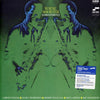
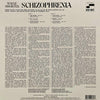
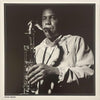
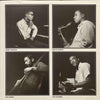
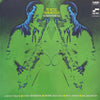
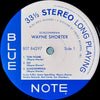
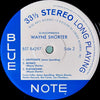
Wayne Shorter - Schizophrenia
Wayne Shorter – tenor saxophone [click here to see more vinyl featuring Wayne Shorter]
Herbie Hancock – piano [click here to see more vinyl featuring Herbie Hancock]
Ron Carter - Bass [click here to see more vinyl featuring Ron Carter]
Curtis Fuller - Trombone [click here to see more vinyl featuring Curtis Fuller]
Joe Chambers - Drums
James Spaulding - Alto Saxophone, Flute
Written by Wayne Shorter (A1-3, B2-3), James Spaulding (B1)
1 LP, Gatefold jacket printed by Stoughton Printing Co.
Original analog Master tape : YES
Heavy Press : 180g
Record color : black
Speed : 33RPM
Size : 12”
Stereo
Studio
Record Press : Record Technology Incorporated
Label : Blue Note Tone Poet
Original Label : Blue Note
Recorded on March 10, 1967, at Van Gelder Studios, Englewood Cliffs, New Jersey
Engineered by Rudy Van Gelder
Original sessions produced by Francis Wolff
Reissue produced by Joe Harley
Mastered by Kevin Gray at Cohearent Audio
Cover design by John Zoiner
Liner notes by Leonard Feather
Photography by Francis Wolff
Originally released in May 1969
Reissued in September 2023
Tracks :
Side A:
- Tom Thumb
- Go
- Schizophrenia
Side B:
- Kryptonite
- Miyako
- Playground
Reviews :
“Wayne Shorter was at the peak of his creative powers when he recorded Schizophrenia in the spring of 1967. Assembling a sextet that featured two of his Miles Davis bandmates (pianist Herbie Hancock and bassist Ron Carter), trombonist Curtis Fuller, alto saxophonist/flautist James Spaulding and drummer Joe Chambers, Shorter found a band that was capable of conveying his musical "schizophrenia," which means that this is a band that can play straight just as well as they can stretch the limits of jazz. At their best, they do this simultaneously, as they do on the opener "Tom Thumb." The beat and theme of the song are straightforward, but the musical interplay and solos take chances that result in unpredictable results. And "unpredictable" is the operative phrase for this set of edgy post-bop. Shorter's compositions (as well as Spaulding's lone contribution, "Kryptonite") have strong themes, but they lead into uncharted territory, constantly challenging the musicians and the listener. This music exists at the border between post-bop and free jazz -- it's grounded in post-bop, but it knows what is happening across the border. Within a few years, he would cross that line, but Schizophrenia crackles with the excitement of Shorter and his colleagues trying to balance the two extremes.” AllMusic Review by Stephen Thomas Erlewine
Ratings:
AllMusic 4.5 / 5 , Discogs 4.82 / 5


